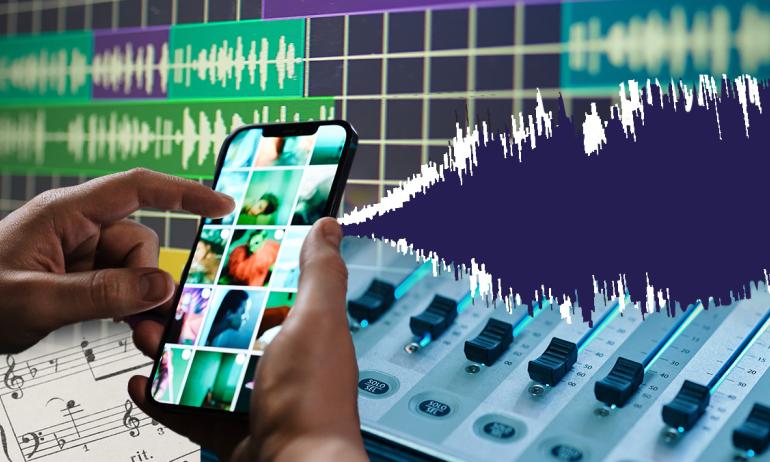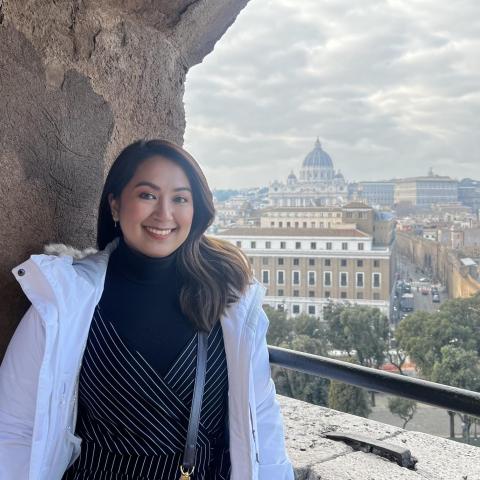'It's Time' for Women to Play a Bigger Role in Music Tech

She Knows Tech cofounder Jasmine Kok M.M. ’18
Image courtesy of the artist
When alumna Jasmine Kok M.M. ’18 began her coursework at Berklee's campus in Valencia, Spain, she noticed something: there were no female faculty members and very few female students in Berklee’s Music Production, Technology, and Innovation (MPTI) program. Inspired to create a space where women could share their experiences and challenges in the music industry, Kok cofounded She Knows Tech, which seeks to close the gender gap in music technology. In January 2020, right before the Grammy Awards, the group released a video titled “It’s Time”—a one-shot production featuring a wide range of women playing every single role in a live studio session.
Watch the "It's Time" video:
We spoke to Kok about the inspiration behind the video, the work of She Knows Tech, and why it’s important for women to be able to see themselves in every part of the music industry.
Tell us about the inspiration behind She Knows Tech.
The idea came about when I was a graduate student at Berklee Valencia, and I noticed the lack of female faculty members in my program. The male-to-female ratio among MPTI students was almost four to one. (This was an improvement over the previous year—it had been 10 to one!) I was surprised to hear from my faculty advisor that women simply aren’t applying for these programs. I wondered: does that mean we are not interested? Or not confident?
I wanted to do something, and my program director recommended I form a team. I worked with two other graduate students, Lillian Gagnon and Anna Parry. I couldn’t have done it without them. We started as a student activity/peer-to-peer platform. We hosted workshops and interviewed female guests from the industry who came to campus. Most of the women we interviewed were producers, engineers, and technologists, and it was great—but I started to wonder: how effective were these workshops? Were we really making a difference? How could we develop a more sustainable program?
What did you do next?
I started talking to a bunch of the female MPTI students about an idea for a mentorship program. We got commitments from five graduate students to mentor four undergraduate students each, offering seven sessions instead of a one-off like a workshop (though we kept doing those, too). I was surprised—we got almost 40 applicants for our first class. We were able to take 20, and almost half of last year’s mentees are now in tech-related majors at Berklee.
What has been the impact on the mentees?
There are several impacts. First, there’s this buzz of excitement that permeates the entire semester—I recorded a track! I learned how to make a beat! The program provides a place to learn skills and share them and be encouraged. The most powerful thing the mentees are walking away with is not the technical knowledge, but the confidence they were able to mirror from their mentors. I’ve certainly seen that in my own experience—my mentors have helped me by modeling, and I’ve gained confidence by watching them.
Tell us about the process behind the “It’s Time” video.
It’s funny—that came about because I was applying for a business internship in Europe, and to complete that application, I had to shoot a video. So I pulled a bunch of students and staff together and had them narrate the impact I hope to make in the industry through She Knows Tech.
I really love that there are a huge range of women in the video: different accents, ages, races, and voices. I was adamant about getting a lot of women of color to participate, because so often the women you do see in the industry are white. I wanted to do it in one shot and make it powerful. Everything in your news feed online is a video, and I wanted people to watch the whole thing.
When you visualize women in the studio, you often see the artist, the artist’s girlfriend, a secretary, or a studio manager. I thought, “What if we put together a team of women setting up a session?” We are more than just those roles. We threw some different thoughts and statistics into the video, too. I wanted to end it with women who are very experienced in this industry anchoring the facts and voices, so we featured several faculty members. And the young girl at the end is one of my piano students from here in Valencia. I’m so glad she and her mom said yes to participating—there’s a future element to this work. It doesn’t just impact women now, but the future of the industry.
What’s next for She Knows Tech?
We are in the process of getting registered as a company. Lots of festivals and conferences are getting canceled this spring because of the coronavirus (COVID-19), but I want to continue reaching out to those events to carve out a spot for women to go—to nerd out, basically. When I was at ADE 2019 [the Amsterdam Dance Event, a huge electronic music conference], to my surprise, master classes were mostly attended by men. The youngest was 8 years old! I wanted to create a space where women could inspire each other to own this space. Whether you are confident or not—just to come together and own it.
I also want to collaborate with higher education institutions to help them set up a tech training program. I want to encourage them to open doors for women—the other 50 percent of their clientele! I started doing this work because I was hoping someone would have done it for me. We can wait, or we can all do something.



